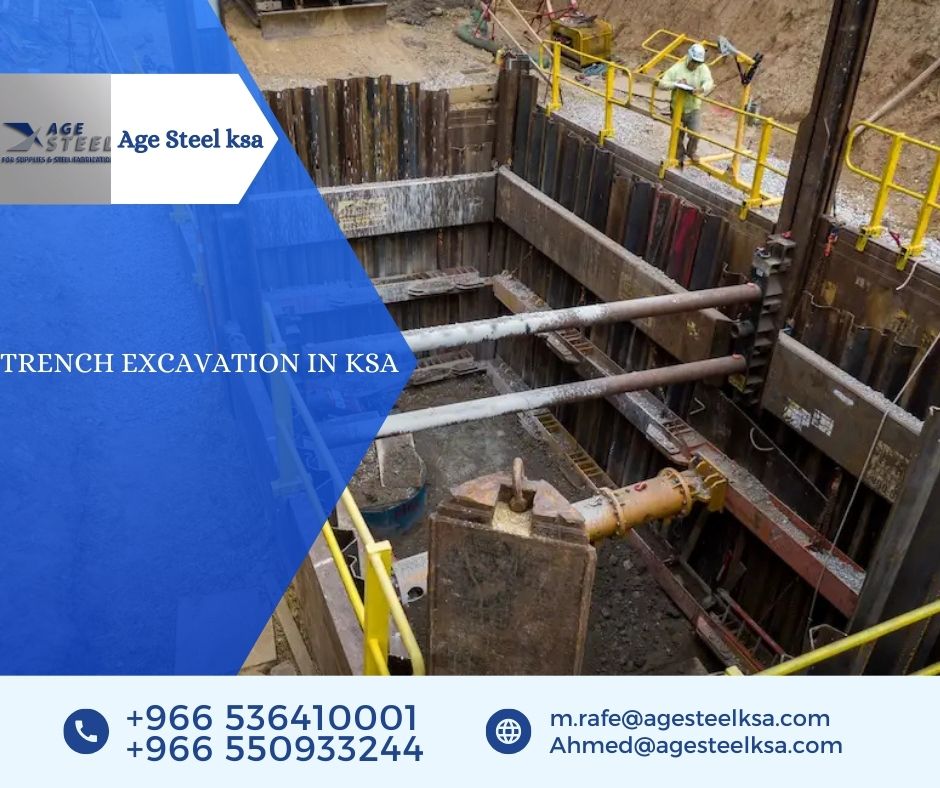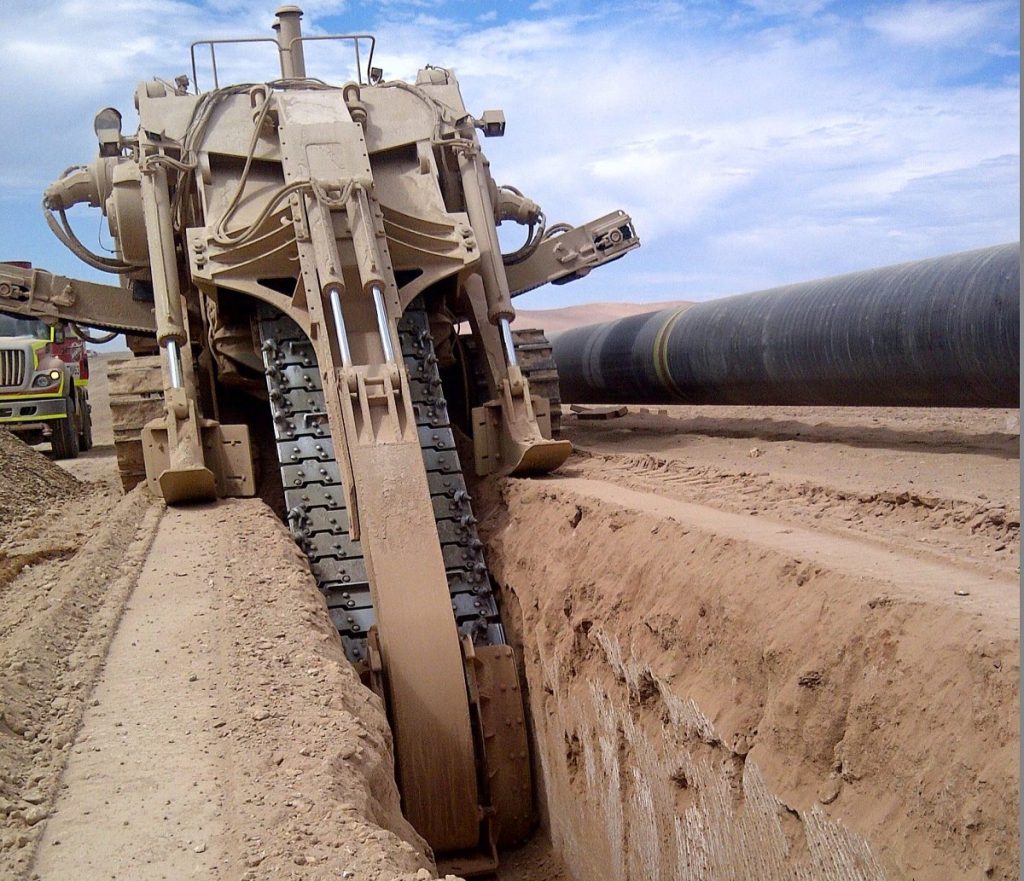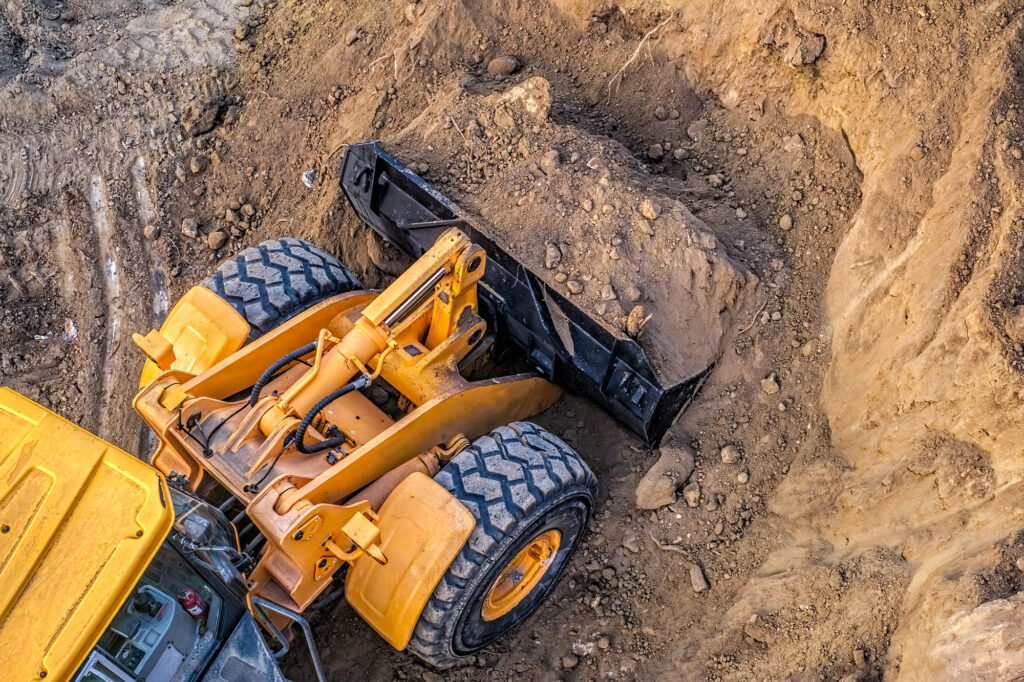
Trench excavation in KSA plays a crucial role in Saudi Arabia’s infrastructure development, supporting projects in construction, oil and gas, utilities, and roadworks. Given the rapid urban expansion and the ambitious Vision 2030 initiatives, trench excavation in KSA has become more significant than ever. However, trench excavation in KSA comes with specific challenges, including safety concerns, regulatory requirements, and environmental considerations. With new construction methods, companies are now able to improve efficiency and safety in excavation projects. This article explores the key aspects of trench excavation in KSA, focusing on best practices, safety measures, and legal compliance.
The Kingdom of Saudi Arabia enforces strict regulations to ensure trench excavation projects adhere to safety and environmental standards. Some of the key regulatory bodies and guidelines include:
Compliance with these regulations is essential for project approval and smooth execution. Violating safety or environmental laws can result in heavy fines, project delays, or shutdowns. Leading construction companies in Riyadh ensure that these regulations are met for the successful completion of projects.

Extreme temperatures, desert climate, and sandstorms pose challenges for excavation teams. Heat exhaustion, dehydration, and reduced machinery efficiency require proactive planning. Trench shoring systems help mitigate these risks.
Soil varies across Saudi Arabia, from rocky terrain in the west to loose sand in the central regions. Trenching in unstable soils increases collapse risks, requiring specialized shoring or trench boxes.
Cave-ins, falls, and hazardous gas exposure remain serious risks. Worker safety through training, protective gear, and reinforcement systems is critical.
Obtaining permits can be time-consuming, especially in urban areas. Companies must coordinate with authorities and utility providers to avoid conflicts with underground services.
Archaeological finds or unmarked pipelines may cause delays and require reevaluation. Modern excavation technologies help overcome these challenges.
Workers must be trained in excavation safety, hazard recognition, and emergency response. PPE like helmets, gloves, and reflective vests is essential.
Trench excavation should be scheduled during cooler hours. Adequate hydration, rest breaks, and shaded areas must be provided to workers.
Use water spraying and barriers to manage dust and soil erosion. Controlling dust is especially important in urban projects to reduce environmental impact.
Age Steel® provides essential materials for trench shoring systems, trench boxes, and reinforcement structures. High-quality steel ensures durability and stability in challenging soil conditions. Steel-based solutions help companies comply with safety regulations and enhance worker protection.

Trench excavation in KSA is vital for infrastructure development but comes with unique challenges and strict regulations. Companies must prioritize safety, follow best practices, and ensure compliance with Saudi laws. With modern methods and improved shoring systems, the future of excavation in the Kingdom looks promising.
